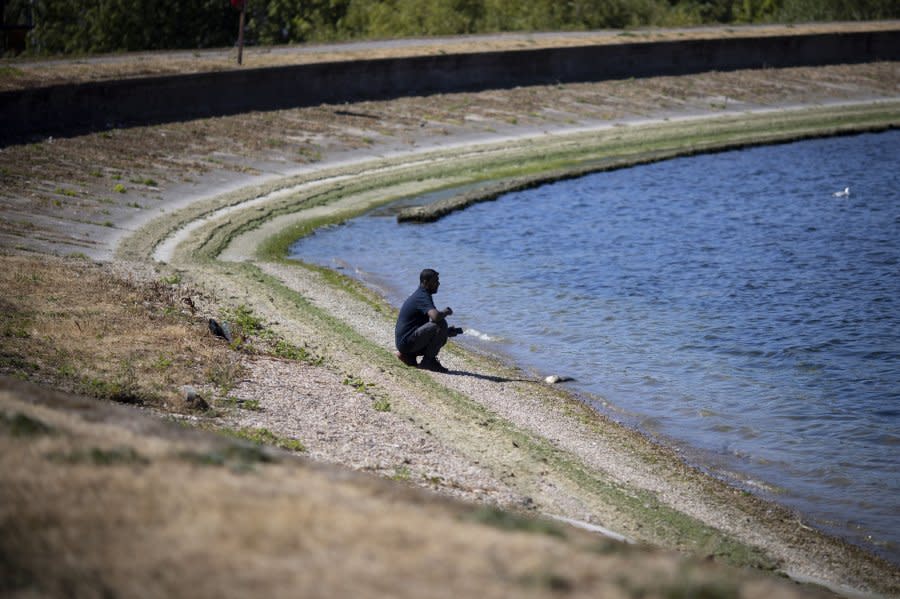British water utilities seek approval for $117B modernization plan paid for by higher bills

Oct. 2 (UPI) -- Britain's water utilities industry unveiled plans Monday to almost double infrastructure investment to $117 billion between 2025 and 2030 to maintain quality drinking water, secure the water supply for the future and slash the volume of sewage flowing into rivers and the sea.
The plans, to be paid for with higher bills and only if industry watchdog Ofwat approves, involve building 10 new reservoirs, reducing water lost through leaks by 25% and modernizing the sewage system to reduce "storm overflows," when untreated sewage is released into waterways during heavy rain the prevent the system backing up, Water UK said in a news release.
The 17 water companies also want to install advanced technology at sewage treatment works to reduce the amount of phosphorus added to rivers by more than a million tons.
Spending on upgrading sewage plants and sewer infrastructure, including upgrading or replacing more than 62,000 miles of sewers, will more than triple to $13.4 billion in what Water UK claimed would be the most ambitious modernization in 150 years. It expects the upgrades to reduce storm overflows by more than 140,000 a year by 2030, preventing spillage equivalent to 6,800 Olympic swimming pools each year.
The scheme will also harness the natural environment, creating new nature-based schemes to improve rainwater management, and technology to better manage flows.
The plans, which were arrived at with input from more than 1.6 million customers, will add $8.53 a month to the average bill of customers in England by 2025, rising to $15.84 in 2030 but offsets the impact on the less well-off by boosting by 2 million the number of households eligible for subsidized bills to 3.2 million.
"While increasing bills is never welcome, this investment in our country's infrastructure is essential to ensure the security of our water supply. Water companies are seeking regulatory approval to reduce overflow spills into rivers and seas as fast as possible and to double the number of households receiving support to pay their bills," Water UK Chief Executive David Henderson said.
He also urged Ofwat to approve the plans so that the utilities can "provide the highest quality drinking water for a growing population, ensure the security of our water supply in the future and reduce the use of storm overflows as much as possible."
The proposal, just months after water companies were forced to apologize for dumping untreated sewage into rivers and the sea over 300,000 times in 2022 and a week after 11 water companies were ordered to repay customers $139 million for poor performance on pollution, leaks and customer service, comes as public anger continues to mount.
Critics allege the water utilities, which were privatized in 1989, have collectively failed in their legal responsibility to provide a good sewage system, protect the environment and manage freshwater stocks while treating the franchises as a cash cow, extracting billions in profits of which $87.6 billion has been paid out in shareholders dividends and executive bonuses.
The Environment Agency and Ofwat are almost two years into a criminal investigation, its largest ever, of potential widespread breaches of environmental permit conditions at wastewater treatment works by all water and sewerage companies.
On the day the investigation was launched in November 2021, Ofwat wrote to the water companies demanding an explanation for the dividends and performance-related bonuses, which by law must take account of delivery of obligations and commitments, when the companies were not complying with their obligation to provide a sewerage system of the requisite standard.
Water pollution campaigner Feargal Sharkey said customers had already paid the water companies all of the money needed to build and operate a "properly functioning sewage system" and were now asking them to pay again for something they had already paid for.
"Water companies 'certify' annually they've had our money. Where's our money gone, what happened to it, when do we get a refund?" Sharkey wrote in a post on Twitter.

